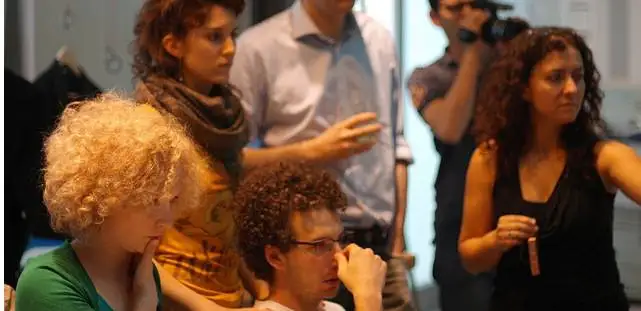10 reasons Open Innovation fails
27.01.2014 | Christian Kreutz

Taken at a Social Innovation Camp http://www.flickr.com/photos/sicamp/7356916932 (CC)
Open innovation can be a powerful force. When hundreds of people collaborate openly things can evolve in all kinds of creative ways. That kind of energy is fantastic to see and I am always excited to follow open innovation events implemented through our application. Ideas spread like wild fire and comments come in by the minute as lately seen in an exciting project with the Deutsche Welle.
Hack-a-thon, idea contest, innovation lab – there are so many forms of open innovation nowadays, but there are also many times when open innovation fails to solve problems or attract participation. Here are 10 things NOT to do if you want your open innovation challenge to succeed:
- Offer big, monetary prizes to participants. This a great incentive to attract a large number of participants, but does not usually motivate participants to come up with the best ideas. It is proven through many studies that monetary or material benefits are secondary for people's motivation in creating better ideas or products. Check this post for more detailed thoughts on this point.
- Focus only on the "best ideas" and winners. Ideas have to develop and that's why a major part of open innovation is about the collaboration around ideas. Sometimes the "losing" ideas, when given a fresh set of eyes, become great ideas. Too often open innovation contests are focused solely on public relation events and less on the ideas itself.
- Setup an idea contest and believe people will just show up. In my experience, the mobilization of campaigns is one of the cornerstones of success for open innovation. Not only for higher participation, but for attracting a wider diversity of participants and knowledge, which encourages better dialogue and a fruitful exchange of ideas.
- Being obsessed with rules of behavior and communication policies. If you do not inherently believe in the constructive way people can communicate and collaborate then do not try to innovate openly. The so-called social media policies are often only read by its creators.
- Moderators and organizers do not engage in the conversations. It is absolutely essential to engage in the conversation as organizers: facilitate, don't just observe. Input and support from the top management is very helpful, and you only learn how it works if you engage yourself.
- Don't have an implementation plan. If participants don't see their ideas being implemented, they will lose trust in the organization, and will not participate again in the future. A lot of effort goes into creating projects and ideas in open innovation contests. Reward that effort by showing your appreciation and commitment: have a plan to put the winning (and losing) projects to good use.
- You believe social media is a waste of time. Open innovation processes are large conversations. Such free knowledge sharing can range from the trivial to the complex, but best ideas happen in the coffee house. Social media platforms such as Facebook, Google +, Twitter and LinkedIn allow participants to share ideas in an informal setting and directly interact with your organization. Don't lose this great opportunity for engagement by dismissing social media.
- You believe open innovation can be planned from A-Z. Open innovation is a journey which needs a fair share of flexibility. It is important to have a plan, but that does not mean you should plan to plan everything ahead. Most open innovation processes that I have observed turn out somehow differently than clients have anticipated. A presentation by Judo Antin from Facebook called "What Lies Beneath: The Foundations of Motivation in the Age of Social Media", shows intriguingly the complexity about user dynamics. See the video below.
- Boring topics. What challenge hits a nerve? Boring topics are a recipe for failure. If Ricky Gervais can create an engaging comedy about a paper company, you can come up with an engaging open innovation challenge. The highly recommended Feverbee blog has a great post about what drives motivation in communities.
- Rephrasing good ideas and selling them as your own. This is the worst. People come up with great ideas and discussions. The management picks these fruits as their success. Recognition is so important in open innovation. It leads to incredible frustration if people are undervalued in the process. Give credit where credit is do, and include participants in the implementation project.